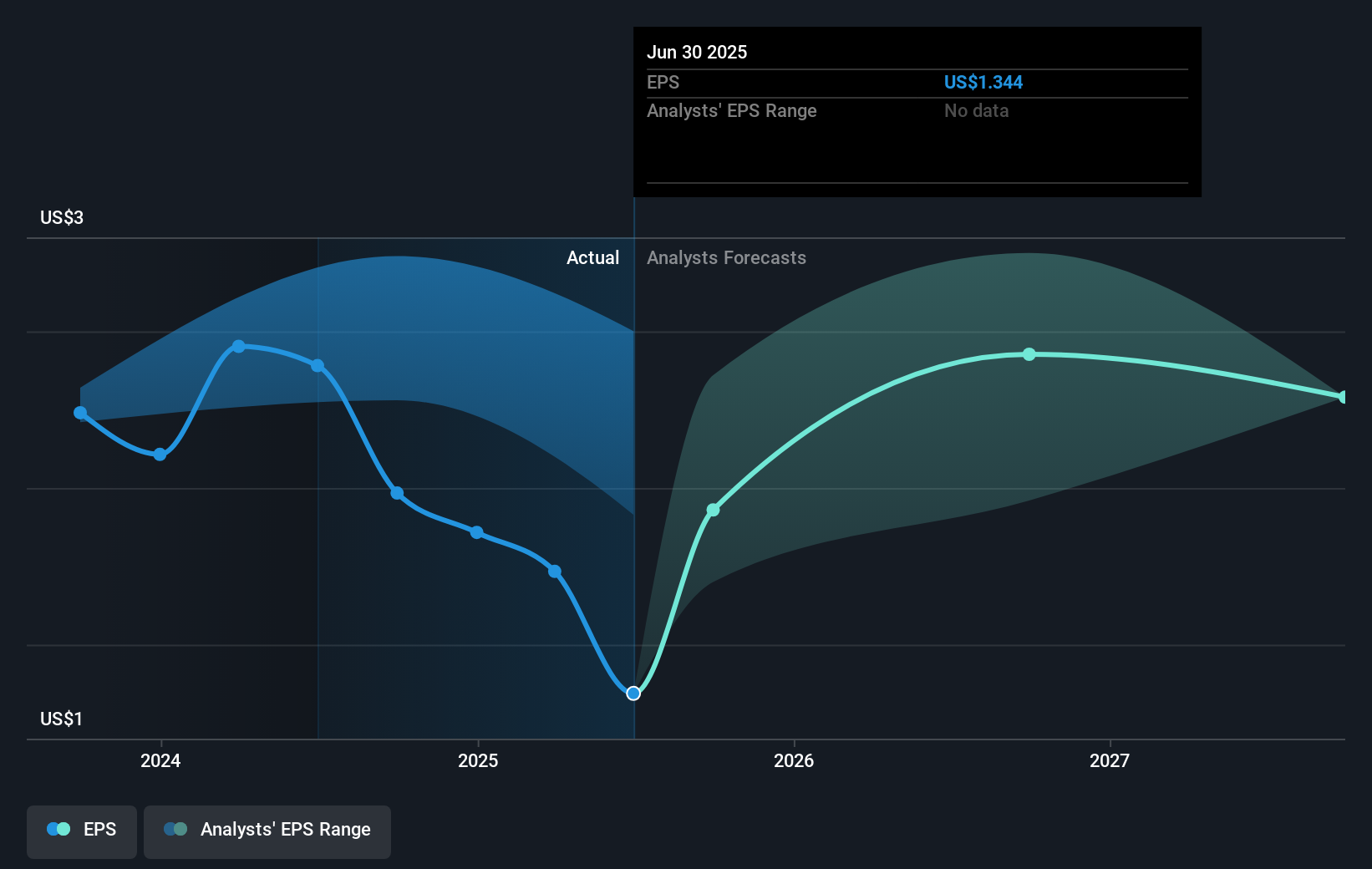- United States
- /
- Personal Products
- /
- NYSE:EPC
Investors three-year losses continue as Edgewell Personal Care (NYSE:EPC) dips a further 5.6% this week, earnings continue to decline
For many investors, the main point of stock picking is to generate higher returns than the overall market. But in any portfolio, there are likely to be some stocks that fall short of that benchmark. We regret to report that long term Edgewell Personal Care Company (NYSE:EPC) shareholders have had that experience, with the share price dropping 50% in three years, versus a market return of about 90%. And more recent buyers are having a tough time too, with a drop of 47% in the last year. Furthermore, it's down 25% in about a quarter. That's not much fun for holders.
After losing 5.6% this past week, it's worth investigating the company's fundamentals to see what we can infer from past performance.
While the efficient markets hypothesis continues to be taught by some, it has been proven that markets are over-reactive dynamic systems, and investors are not always rational. One flawed but reasonable way to assess how sentiment around a company has changed is to compare the earnings per share (EPS) with the share price.
Edgewell Personal Care saw its EPS decline at a compound rate of 12% per year, over the last three years. This reduction in EPS is slower than the 21% annual reduction in the share price. So it seems the market was too confident about the business, in the past.
You can see below how EPS has changed over time (discover the exact values by clicking on the image).

Dive deeper into Edgewell Personal Care's key metrics by checking this interactive graph of Edgewell Personal Care's earnings, revenue and cash flow.
What About Dividends?
When looking at investment returns, it is important to consider the difference between total shareholder return (TSR) and share price return. The TSR is a return calculation that accounts for the value of cash dividends (assuming that any dividend received was reinvested) and the calculated value of any discounted capital raisings and spin-offs. Arguably, the TSR gives a more comprehensive picture of the return generated by a stock. We note that for Edgewell Personal Care the TSR over the last 3 years was -48%, which is better than the share price return mentioned above. The dividends paid by the company have thusly boosted the total shareholder return.
A Different Perspective
Investors in Edgewell Personal Care had a tough year, with a total loss of 46% (including dividends), against a market gain of about 21%. However, keep in mind that even the best stocks will sometimes underperform the market over a twelve month period. Regrettably, last year's performance caps off a bad run, with the shareholders facing a total loss of 4% per year over five years. Generally speaking long term share price weakness can be a bad sign, though contrarian investors might want to research the stock in hope of a turnaround. While it is well worth considering the different impacts that market conditions can have on the share price, there are other factors that are even more important. Even so, be aware that Edgewell Personal Care is showing 4 warning signs in our investment analysis , and 1 of those shouldn't be ignored...
But note: Edgewell Personal Care may not be the best stock to buy. So take a peek at this free list of interesting companies with past earnings growth (and further growth forecast).
Please note, the market returns quoted in this article reflect the market weighted average returns of stocks that currently trade on American exchanges.
Valuation is complex, but we're here to simplify it.
Discover if Edgewell Personal Care might be undervalued or overvalued with our detailed analysis, featuring fair value estimates, potential risks, dividends, insider trades, and its financial condition.
Access Free AnalysisHave feedback on this article? Concerned about the content? Get in touch with us directly. Alternatively, email editorial-team (at) simplywallst.com.
This article by Simply Wall St is general in nature. We provide commentary based on historical data and analyst forecasts only using an unbiased methodology and our articles are not intended to be financial advice. It does not constitute a recommendation to buy or sell any stock, and does not take account of your objectives, or your financial situation. We aim to bring you long-term focused analysis driven by fundamental data. Note that our analysis may not factor in the latest price-sensitive company announcements or qualitative material. Simply Wall St has no position in any stocks mentioned.
About NYSE:EPC
Edgewell Personal Care
Manufactures and markets personal care products worldwide.
Very undervalued with slight risk.
Similar Companies
Market Insights
Community Narratives



